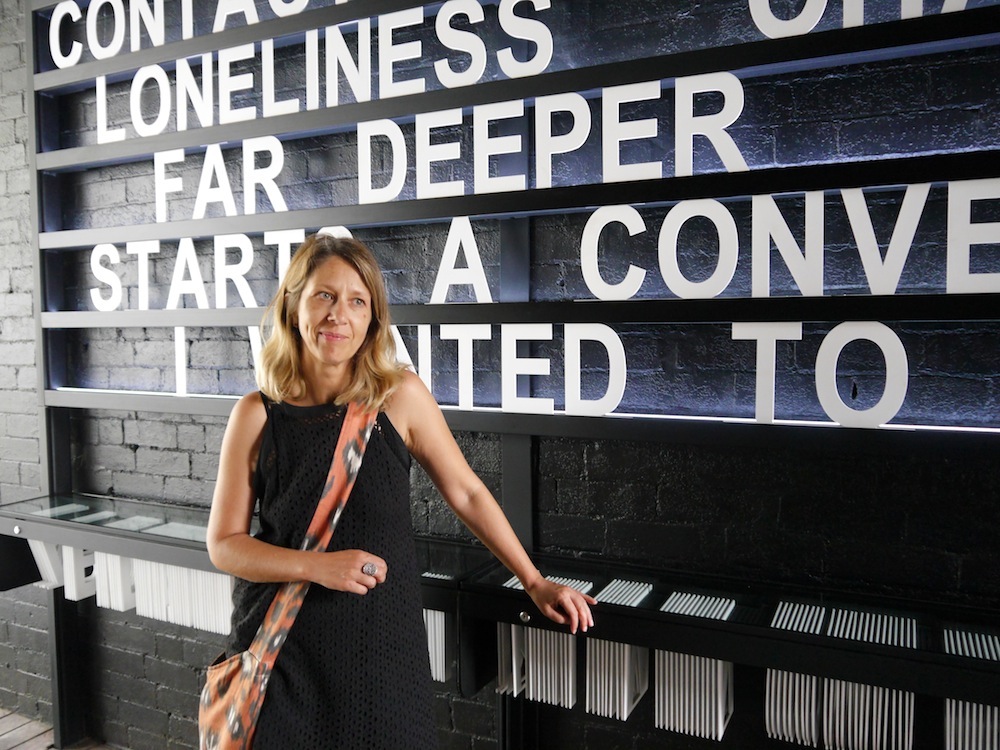
Karina Kreminski
Karina Kreminski was born in Argentina and has a Slavic background. She was born into an immigrant culture and so moved to Australia at a very early age. Karina moved to Surry Hills recently in the hope of helping to continue to build community there. She is a foodie, mentor, writer, teacher and an explorer. She is on the board at the Surry Hills Neighbourhood Centre and is running a course there in 2017 called The Happiness Lab.
See Karina's complete contribution to Village Voices below:
Progress or making room for new things
Can you love something so much that you destroy it?
I have observed Surry Hills from a distance for some time and was quickly falling in love with it. Everyone that visits comments on how pretty it is. In a funny way Surry Hills makes me think of a time that women wore hats and petticoats, men wore suspenders and curly moustaches.
I loved the tree-lined streets. Bourke Street is embraced by London plane trees which obey the rhythms of the season. Appropriately the leaves turn red in autumn, sea green in summer and gracefully fall away in winter making room for new things. I can even forgive the trees in spring when they produce spores that swirl around on windy days, get stuck in your throat and make you almost choke.
I often would walk around the streets and look around me continually, which made me bump into people. "Careless tourist" I am sure people thought. But I could not help it. At every corner there was always something new to see if you had eyes to see it. Some detail on a building that catches your eye, an exotic pot pant on the footpath containing a gigantic succulent, a massive dog walking its owner which always made you wonder "How does the dog fit into the mostly tiny homes of Surry Hills?"
So instead of having an affair with the place I decided to commit and move into this little village. I didn't want to be watching from a distance, a tourist, a consumer or a visitor. I wanted to be a "local" as they say. A local cares for a place and gives rather than takes. Your story becomes interwoven into the streets and public places, your footprints remain on the pathways and contribute to their formation. So the place becomes sacred with the imprint of human beings on the geography of the neighbourhood.
And I discovered something once you move into Surry Hills. I have discussed that you become very protective of the place. It is a place that is used to change so I am sure that it will withstand this season. But I worry that it won't. I worry that everyone loves Surry Hills so much that it might crumble under the weight of our affections. In the name of progress will the place lose its soul? Will it become plastic, vanilla, a crowded place full of shell people?
It's a sin to stand in the way of progress. Well, that's what our society says anyway. We laugh at the idealism of those who live in the past when things went much slower. But don't we have something to learn from them too? Surry Hills you don't need to make yourself too pretty. It's ok t be messy. Some of you tattered buildings are like the wrinkles on the face of a beautiful wise elder. Each line, each crease and each flake of skin carries the experience of a lifetime. Plastic surgery is popular in our youth obsessed culture, but character runs much deeper.
As the old passes yet again in this place that is used to change and being loved to death, may the new bring people who know how to are for this treasured pocket of life in the city.
Eye Contact
When I moved into Surry Hills I was afraid of making eye contact with people. A new place always brings out the shyness in anyone I think. It's not easy to make friends in a new place. Some people look too stylish here and I recoil, others walk past me yelling out abuse and mumbling to themselves and I choose to walk the other side of the road.
And this city can amplify loneliness. With so many people coming and going, so many people in this space it blurs the line between locals and visitors, so everyone seems to be a stranger. We learn to avoid eye contact. We fear what we don't know. Why does it make us uncomfortable to make eye contact with the other? We walk looking down with faces glued to our phones. The virtual world is safer, more in our control, less annoying and able to be shut down when we have had enough. Hospitality shown towards the other in this environment becomes radical, counter-cultural, even subversive. We show welcome to those who are different and so we embody and model an alternate reality that points to who we truly want to be- a people who show kindness and banish loneliness.
The narrow streets of Surry Hills force me to bump into others. The tiny cafes place me next to people who start talking with me as they look over my shoulder and comment on the book I am reading. Those who own dogs casually interact with each other and connect through their pets. Locals who have known each other forever stop, smile and catch up on gossip. Hipsters, homeless and families intermingle in the same park reminding us that we are all one humanity. Parents remind me that the past blends into the present.
When I do finally look up and make eye contact with someone I can see something sacred there, something divine and something human mixed together. This is the beginning of friendship, a gaze that can start a conversation, a smile that speaks of welcome, a word that can be the beginning of real community.